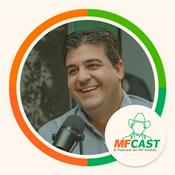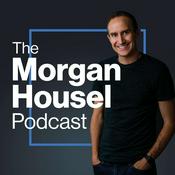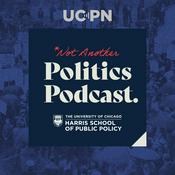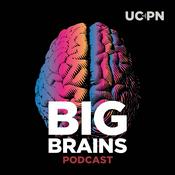231 episódios
- If a sports betting app has the data to know exactly when a user is struggling financially, should it have a legal duty to cut that person off?
On this episode of Capitalisn't, we dive into the murky waters of the American sports betting explosion. We are often told that legalization simply moves an existing black market into the light, but guest Jonathan Cohen argues that the issue isn’t that we legalized the industry—it’s that we did it "recklessly."
Cohen, the Policy Lead at the American Institute for Boys and Men and author of Losing Big: America's Reckless Bet on Sports Gambling, joins Bethany and Luigi to outline the serious costs of this rapid liberalization. His data shows that legalized online sports betting is associated with a 25% to 30% increase in personal bankruptcies, a notable rise in auto loan defaults and credit card delinquencies, and increased cases of childhood neglect.
Is there a way to fix this market so that it is fair for consumers without imposing such a high degree of societal cost? Host Luigi Zingales suggests a broader solution: a "fiduciary duty" for data collectors. When you give sensitive information to a doctor, accountant, or lawyer, they are bound to use that data only in your interest. If a betting app sees a user's credit card deposits being declined or identifies a pattern of "loss chasing," should they be legally required to act in your interest instead of targeting you with VIP offers?
Hosted by Simplecast, an AdsWizz company. See pcm.adswizz.com for information about our collection and use of personal data for advertising. - Is the era of manufacturing-led growth officially over? For decades, the path to a stable middle class was paved through industrialization, but today, even manufacturing giants like China are losing millions of factory jobs to automation.
In this episode, Bethany McLean and Luigi Zingales sit down with Dani Rodrik, Ford Foundation Professor of International Political Economy at Harvard and author of Shared Prosperity in a Fractured World. Rodrik argues that we have "no other choice" but to look toward the service sector to anchor our future economy.
But there’s a problem: we still treat these essential roles as "bottom rung" jobs in terms of pay and respect. Is it possible to elevate a job’s status and pay simply because society needs it to be better? As Rodrik argues, it’s a future we must learn to navigate if we want to preserve a stable society.
Hosted by Simplecast, an AdsWizz company. See pcm.adswizz.com for information about our collection and use of personal data for advertising. - Is the Federal Reserve’s independence a pillar of democracy or a convenient shield that allows elected officials to duck their responsibilities? This week on Capitalisn’t, we confront a shift in Washington after the Justice Department served subpoenas on the Fed.
Joining the conversation is Former Deputy Governor of the Bank of England, Sir Paul Tucker, who complicates the definition of central bank autonomy. If monetary policy is a "latent instrument of taxation," should it be shielded from the King—the executive branch—and reclaimed by the legislature? We explore the provocative argument that the Fed has become dangerously wary of its relationship with Congress, acting as a self-governing entity rather than a delegated authority. Does the U.S. model, where the Fed defines its own version of price stability, explain the accountability gap we see when supervisory failures like the SVB collapse result in zero consequences for leadership?
Finally, we address an unsettling mystery regarding the global financial system. If Fed independence is truly degrading, why are the markets so strangely sanguine? Are global investors simply anesthetized by the AI boom, or does the dollar’s global monopoly allow the U.S. to decay without paying an immediate price? We debate whether the market has ceased to be a barometer for institutional health and instead become a tool for protecting shareholder rents—failing to interpret a "catastrophic forecast" until it is already too late.
Tucker is also the author of "Unelected Power: The Quest for Legitimacy in Central Banking and the Regulatory State" & "Global Discord: Values and Power in a Fractured World Order".
Hosted by Simplecast, an AdsWizz company. See pcm.adswizz.com for information about our collection and use of personal data for advertising. - Is the American tax code a fair engine for growth, or a "second estate" where the rich choose whether or not to pay?
We are often told that the top 1% of earners already pay 40% of all taxes, while nearly half of Americans pay nothing at all. Legal scholar Ray Madoff argues that this statistic is a deliberate "bait-and-switch" designed to confuse the public. The reality is that the truly rich often have little to no income to tax, living instead on borrowed gains and tax-free inheritances.
In this episode, Madoff joins Luigi Zingales and Bethany McLean to discuss her new book "The Second Estate: How The Tax Code Made An American Aristocracy" covering how and why our current tax system allowed the ultra-wealthy to opt out altogether. She argues that to fix the system, we shouldn't just raise rates, we need to bring inheritances and investment gains directly into the income tax system and eliminate the "cover" provided by a broken estate tax.
Hosted by Simplecast, an AdsWizz company. See pcm.adswizz.com for information about our collection and use of personal data for advertising. - Is capitalism a force of nature, or a human-made order that we have the power to shape? In this episode, Luigi and Bethany sit down with Sven Beckert, a Harvard historian and author of the new book A Global History of Capitalism, to tackle a question that seems basic but remains surprisingly difficult to answer: what exactly is capitalism?
Beckert argues that capitalism is not defined simply by the existence of markets—which are found in all human societies—but rather by a specific economic logic of privately owned capital productively invested to produce more capital. He challenges the popular narrative that capitalism and the state are antithetical, suggesting instead that the state has been constitutive of capitalism throughout its history, from the colonization of the Americas to the industrial expansion of the 19th century.
Beckert also argues that capitalism is fundamentally "undogmatic", pointing out that it has thrived under radically different political systems from the British Empire and the slave plantations of the Caribbean to modern liberal democracies and authoritarian city-states. Rather than existing in opposition to the state, does capitalism actually rely on state power to construct markets and enforce the expansion of its logic?
Hosted by Simplecast, an AdsWizz company. See pcm.adswizz.com for information about our collection and use of personal data for advertising.
Mais podcasts de Negócios
Podcasts em tendência em Negócios
Sobre Capitalisn't
Is capitalism the engine of destruction or the engine of prosperity? On this podcast we talk about the ways capitalism is—or more often isn’t—working in our world today. Hosted by author and journalist Bethany McLean and world renowned economist Luigi Zingales, we explain how capitalism can go wrong, and what we can do to fix it.
Cover photo attributions: https://www.chicagobooth.edu/research/stigler/about/capitalisnt.
If you would like to send us feedback, suggestions for guests we should bring on, or connect with Bethany and Luigi, please email: contact at capitalisnt dot com. If you like our show, we'd greatly appreciate you giving us a rating or a review. It helps other listeners find us too.
Site de podcastOuça Capitalisn't, PrimoCast e muitos outros podcasts de todo o mundo com o aplicativo o radio.net

Obtenha o aplicativo gratuito radio.net
- Guardar rádios e podcasts favoritos
- Transmissão via Wi-Fi ou Bluetooth
- Carplay & Android Audo compatìvel
- E ainda mais funções
Obtenha o aplicativo gratuito radio.net
- Guardar rádios e podcasts favoritos
- Transmissão via Wi-Fi ou Bluetooth
- Carplay & Android Audo compatìvel
- E ainda mais funções


Capitalisn't
Leia o código,
baixe o aplicativo,
ouça.
baixe o aplicativo,
ouça.







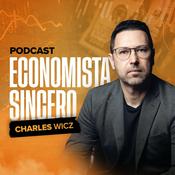












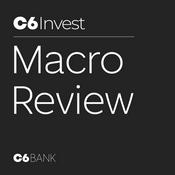










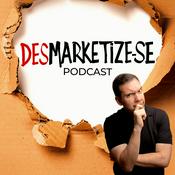



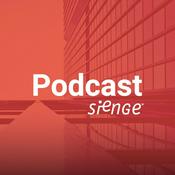
![Podcast ED Podcast [@arthurdantaslemos]](https://br.radio.net/podcast-images/175/segredos-financeiros.jpeg?version=ac63156cee8abb7db20dcb281cc6f2cb16819488)
